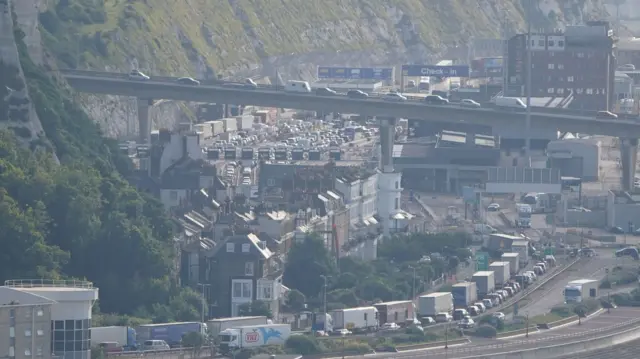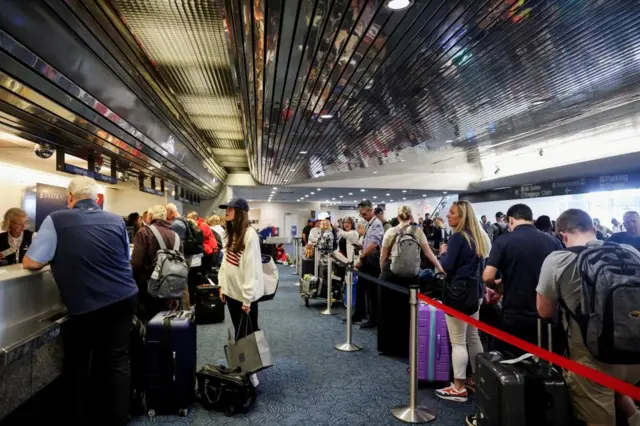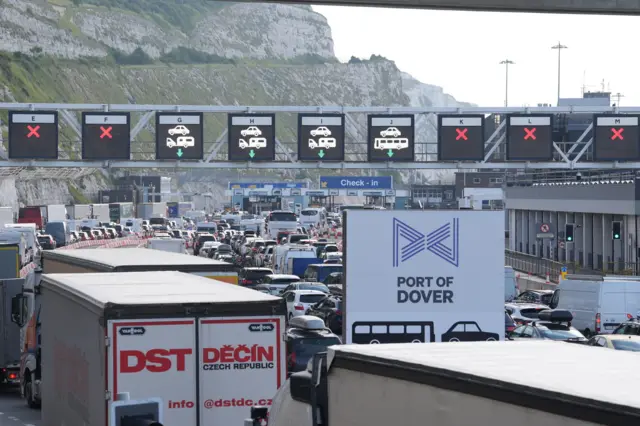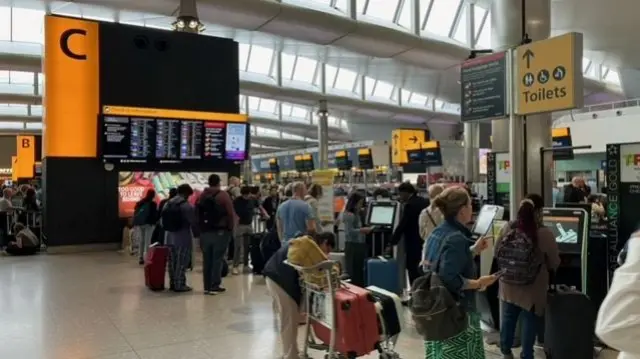Experts warn of second wave of disruption as criminals seek to exploit chaospublished at 11:32 BST 20 July 2024
 Joe Tidy
Joe Tidy
Cyber correspondent
Cyber-security experts are warning of a second wave of disruption and harm that has started to come from cyber criminals hoping to capitalise on the chaos.
This morning Australian Signals Directorate (ASD), the equivalent of the UK's GCHQ or the US National Security Agency (NSA), issued an alert about hackers sending out bogus software fixes claiming to be CrowdStrike.
"Alert! We understand a number of malicious websites and unofficial code are being released claiming to help entities recover" the notice reads.
The agency is urging IT responders to only use CrowdStrike's website to source information and help.
The ASD warning follows calls from the UK's National Cyber Security Centre (NCSC) yesterday for people to be hyper vigilant of suspicious emails or calls that pretend to be CrowdStrike or Microsoft help.
"An increase in phishing referencing this outage has already been observed, as opportunistic malicious actors seek to take advantage of the situation," the agency said.






